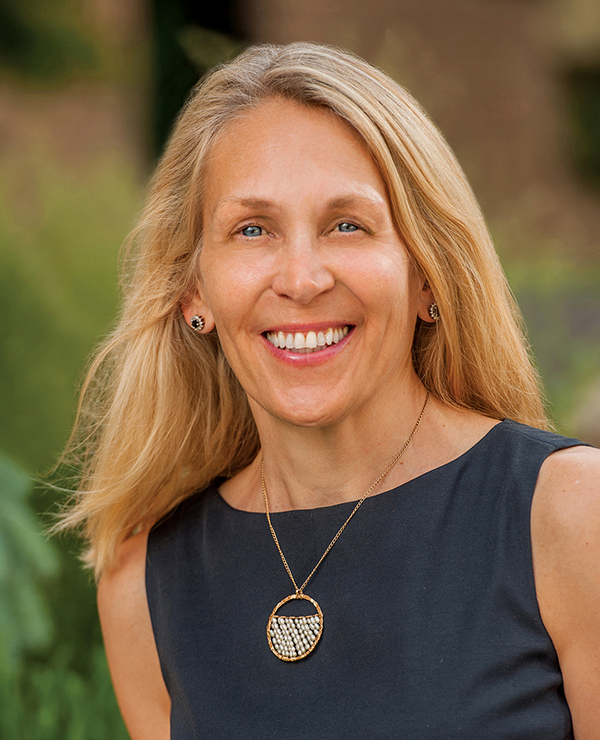Is the National Conference of Bar Examiners losing power?

Currently, 41 of 57 jurisdictions use all or a portion of the NCBE-created Uniform Bar Exam. To date, 23 jurisdictions have signed up for the NCBE-created NextGen exam, launching in 2026. (Image from Shutterstock)
As the National Conference of Bar Examiners sunsets the Uniform Bar Exam in 2028, other pathways to practice outside of its exam offerings are emerging, leaving some to question the NCBE’s hold on controlling licensure.
California is moving forward with plans to develop a proprietary exam with Kaplan Exam Services, and Oregon and Washington are adding new pathways to the bar that don’t require an exam. That means fewer bar candidates will be taking NCBE-created exams.
“The NCBE has had a huge amount of power in the last 30 years,” says Ohio State University Moritz College of Law professor emerita Deborah Jones Merritt. “There clearly are now some competitors, and there may be more. In that sense, NCBE is losing power.”
Currently, 41 of 57 jurisdictions use all or a portion of the NCBE-created UBE. To date, 23 jurisdictions have signed up for the NCBE-created NextGen exam, launching in 2026.
“They basically have control of the market—and that’s the problem,” says Marsha Griggs, associate professor at the Saint Louis University School of Law and president of the Association of Academic Support Educators. “The problem isn’t necessarily the NCBE itself—the problem is that the states and the state supreme courts let us get to this place.”
History test
Jurisdictions created and graded their own bar exam until 1972, when the not-for-profit introduced a 200-question multiple-choice exam developed by psychometricians and marketed it to states, which were experiencing a growing number of applicants to the bar.
“That was a game changer,” says Griggs, author of “Outsourcing Self-Regulation” in the Washington and Lee Law Review. “We’ve got experts producing tests that states can buy. So, it caught on.”
Typically, bar examiners are appointed by the state supreme court for a fixed term.
“Their expertise is being a lawyer or possibly a judge. It’s not creating a standardized test,” Griggs adds. “Many of them are absolutely not law professors, and their last experience with an exam was taking the bar themselves.”
 “They basically have control of the market—and that’s the problem,” says Marsha Griggs, associate professor at the Saint Louis University School of Law and president of the Association of Academic Support Educators. “The problem isn’t necessarily the NCBE itself—the problem is that the states and the state supreme courts let us get to this place.” (Photo by Jeannie Liataud Photography/ABA Journal)
“They basically have control of the market—and that’s the problem,” says Marsha Griggs, associate professor at the Saint Louis University School of Law and president of the Association of Academic Support Educators. “The problem isn’t necessarily the NCBE itself—the problem is that the states and the state supreme courts let us get to this place.” (Photo by Jeannie Liataud Photography/ABA Journal)
After the success of the Multistate Bar Exam, the NCBE launched the Multistate Professional Responsibility exam in 1980 and the Multistate Essay Exam in 1988. Over time, the vast majority of jurisdictions adopted some or all of the exam offerings.
“The state bar examiners got away from the process of even considering what questions should we ask, what laws should we test?” Griggs says. “They became so removed from the test that makes lawyers—and the NCBE controlled it.”
With that control came power, sources say.
“It’s the states’ responsibility to protect the public,” says Greg Bordelon, assistant professor of legal studies at Suffolk University. “They are simply ordering a commodity that they need to measure minimum competency from a national nonprofit—and in so doing, giving the national conference so much authority with that measurement tool that they’re beholding themselves to the resources of the conference.”
Griggs says it is important to continually pay attention to what’s happening with NCBE test products. “I think it’s wrong to put all or most of that power into the hands of a nongovernmental organization that’s not subject to public disclosure or scrutiny. It’s a danger,” she says. “With the power that they have, if ever they acted in a way that was misguided, that’s a problem for all of us.”
Reclaiming responsibility
The motivation for states to consider alternative options is not because the NCBE is incompetent, sources agree. “They are very good at what they do. I don’t want to discount that at all,” says Bordelon. “They know how to make a psychometrically valid and reliable instrument.”
That includes work on developing the new NextGen exam, says OSU’s Merritt. “They’re doing a good job, actually, of listening to the things that other people say they want.” For instance, after receiving feedback from jurists about the importance of family law, the NCBE added it back into list of foundational concepts and principles on the NextGen exam.
But with the NextGen exam offering states a moment to reconsider their licensing options, other pathways, such as supervised practice, are gaining traction.
 Judith Gundersen is president and CEO of the National Conference of Bar Examiners.
Judith Gundersen is president and CEO of the National Conference of Bar Examiners.Some jurisdictions have invited NCBE to give input on those options, says Judith Gundersen, NCBE president, wrote to the ABA Journal.
“We have offered broadly to be of assistance where we’re needed,” she wrote. “Many of the factors that go into assessing the effectiveness of the bar exam also apply to non-bar exam options, and it’s NCBE’s role to help the jurisdictions where we can with our knowledge and expertise.”
She deferred to the jurisdictions to disclose the extent of NCBE’s support.
“We support whatever decisions jurisdictions make, whether it’s writing their own exam, whether it’s using alternative paths or some other mechanism,” she says. “We welcome competition.”
Those states that move away from NCBE-created tests will regain the responsibility of protecting the public by ensuring bar candidates are competent, Griggs says.
“It’s a power reclamation, not a power shift,” Griggs says. “The shift was when we reached the point that the UBE had spread to so many jurisdictions. Any new actions for alternative pathways or state generated exams are an attempt to reclaim that power that has been delegated.”
Updated Aug. 14 to clarify that the State Bar of California is developing the exam with Kaplan Exam Services, a subsidiary of Kaplan North America.



